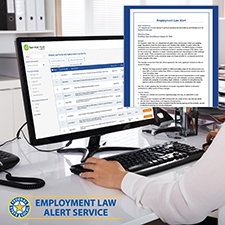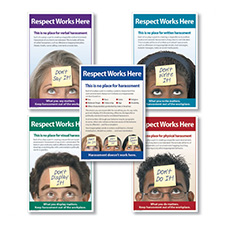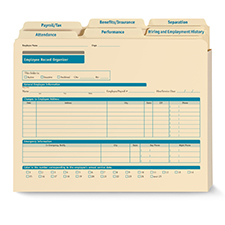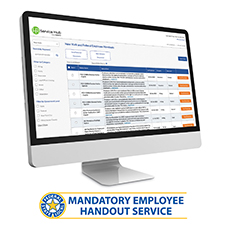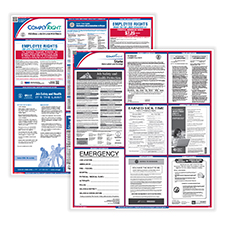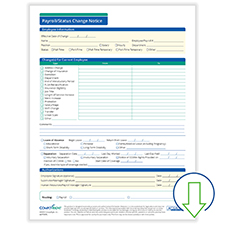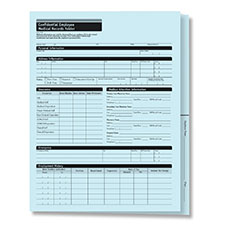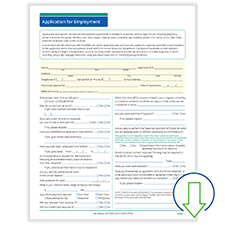
Creating a job listing is one of the first steps in any hiring process. Done well, this posting will highlight the necessary qualifications for the job, including experience, education and skills. Done poorly, however, it may include discriminatory language that could create legal issues before you even contact candidates.
Due to two new Supreme Court rulings in June 2020, it’s important to carefully review your hiring tools and procedures to avoid any legal missteps, including potentially discriminatory job postings. The first Supreme Court ruling protects LGBTQ individuals from sex-based employment discrimination under existing federal law, while the other blocks any attempts to end the DACA (Deferred Action for Childhood Arrivals) program, therefore allowing immigrants brought to the U.S. as children (also known as “Dreamers”) to obtain work authorization.
As a foundation, Title VII under the Civil Rights Act of 1964 states that employers with 15 or more employees can’t discriminate or harass in the workplace on the basis of certain legally protected characteristics. Between this and other federal discrimination laws, you cannot exercise any type of preference or bias based on these protected classes. If your job advertisement isn’t worded properly, you may imply bias without even realizing it.
Here are some things to consider with each protected class:
- Sex/sexual orientation/gender identity — Unless the position you are filling requires a certain gender, such as a restroom attendant, you should never state any gender preferences for the position. Make sure to use gender-neutral job titles. For example, you shouldn’t specify you’re looking for a new “salesman, but, rather, a “sales representative.” “Waitress” would imply a preference for a female candidate whereas “wait staff” shows no gender preference. With respect to female candidates, remember that pregnancy is protected under the Pregnancy Discrimination Act of 1978, so never address an applicant’s childbearing plans or current family status. And, of course, be mindful that Title VII now covers sexual orientation and gender identity under sex discrimination, so gay and transgender individuals are entitled to full legal protections under the law.
- Race — Race should practically never be mentioned in job postings. The only exception is if you’re required to comply with affirmative action requirements, in which case you should state that you participate in an affirmative action program and, if applicable, applicants may be asked to fill out a voluntary identification form.
If you use inappropriate language in your job listing,
you could be guilty of discrimination without even realizing it.
- Religion — Religion also shouldn’t be referenced in job postings unless your business qualifies as a religious organization under Title VII. If you’re a conservative company, be extra cautious with the language you use to convey this. “Christian values” is obviously off-limits, but terms like “traditional,” “wholesome,” or “family values” can be tricky, too. Remember, if it isn’t directly related to the job, it shouldn’t be included. Be mindful, too, that different religions have rules that may require accommodations to your dress code or grooming standards. Stating in a job posting that the job requires someone “clean shaven,” for example, could be seen as religious discrimination since some religions require men to maintain some kind of facial hair. (It also implies that you’re looking for a man, which goes back to using gender-neutral descriptions.)
- National origin — You cannot require applicants to be U.S. citizens unless it’s necessary for the job. Instead, indicate that successful applicants will be required to complete an I-9 to verify their eligibility to work in the U.S. Keep in mind, too, that the recent Supreme Court ruling upholds the DACA program that lets recipients continue to receive employment authorization. If the job absolutely requires English language skills, try to phrase it along the lines of having an excellent command of the English language. Conversely, if the job requires speaking a different language, make sure the emphasis is on the skills. “Must speak Spanish” is okay, but “must be Hispanic” is not.
- Age — In 1974, Congress enacted the Age Discrimination in Employment Act, affecting businesses with 20 or more employees. The ADEA protects applicants 40 and older from any discrimination, so avoid any age-related terms in your job listings. You can look for applicants with a “youthful outlook” or who are “energetic,” but you can’t specify “young people.” Advertise your “entry level” jobs, but don’t use the words “recent graduate.” The words “junior” and “senior” should only be used if they’re part of the job title.
- Disability — The Americans with Disabilities Act of 1990 protects disabled people from any discrimination from businesses with 15 or more employees. It’s important to include precise job descriptions that outline only duties that are absolutely necessary for the particular job. Never use the terms “able-bodied,” “strong” or “healthy.” State the exact tasks required, such as needing to move up to 50 pounds or being capable of traveling to multiple locations for inspections. Make sure to include all of the job’s essential functions.
- Veteran — Under the Uniformed Services Employment and Reemployment Rights Act of 1994 (USERRA), you cannot discriminate against veterans. If you’re part of an affirmative action program, you may indicate that you offer a voluntary identification form as part of the program.
Beyond these federal laws, it’s important to check your own state’s laws as some states offer protection against discrimination based on marital status, criminal history, political affiliations and other factors. State laws may also be stricter and affect businesses with fewer employees than federal laws.
When in doubt, always ask yourself: Is this specification absolutely necessary for the job? If the answer is no, it doesn’t belong in the job posting.
Rely on a Solid, Attorney-Approved Job Application
Because smart, non-discriminatory hiring begins before the interview, it makes sense to look at your job listings and job applications. Are they working in your favor, or are they potential liabilities? Use attorney-approved job applications to strengthen your non-discriminatory hiring practices. All applications contain legally permitted questions, so you can be confident you’re in compliance with the most current federal and state hiring laws.
Related Content:
Hair’s the Deal: Natural Hair Discrimination Is Now Illegal in Certain States
Is Employee Conduct Outside the Workplace Open to Discipline?






 Shopping cart
Shopping cart